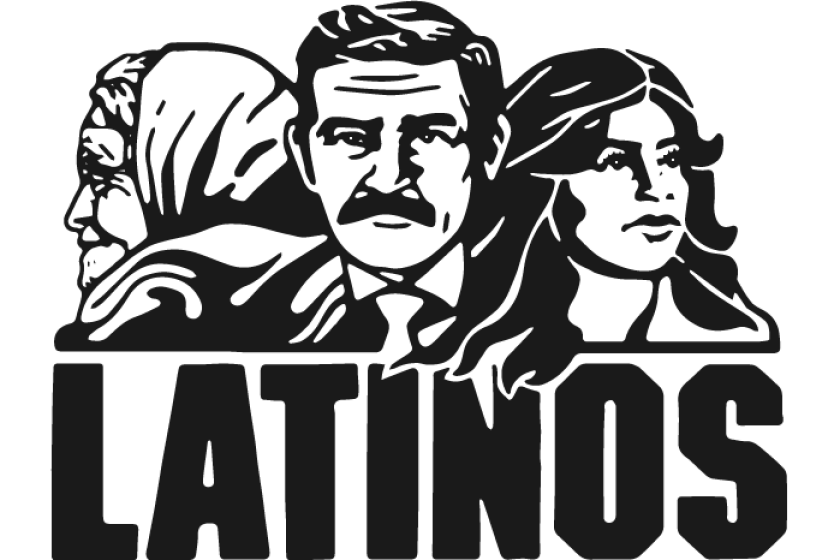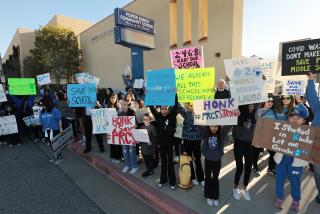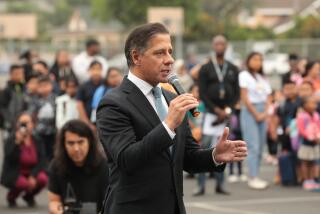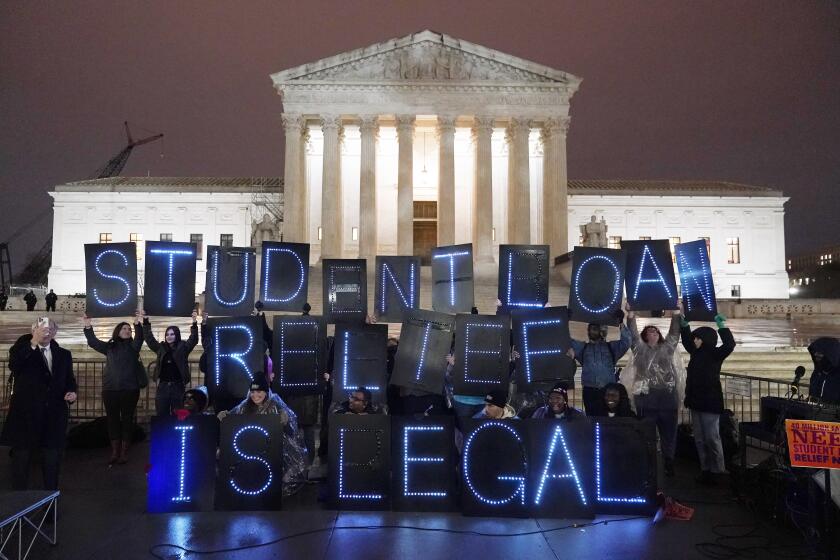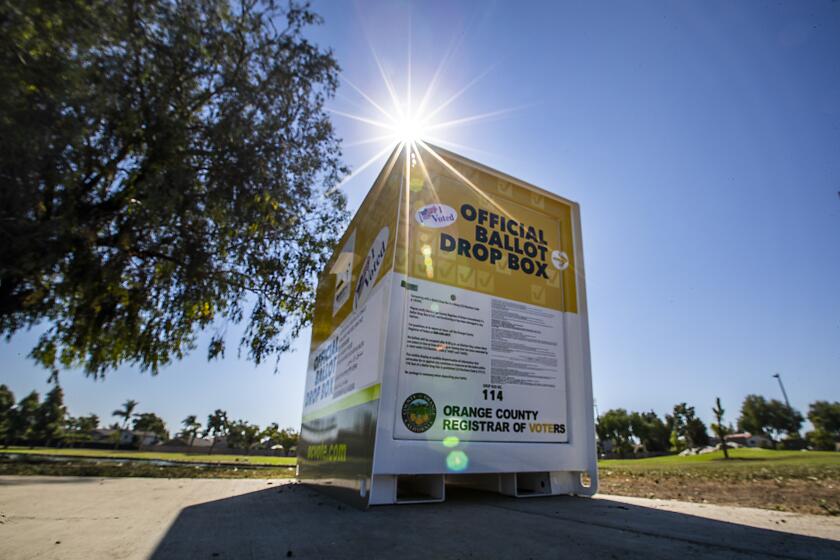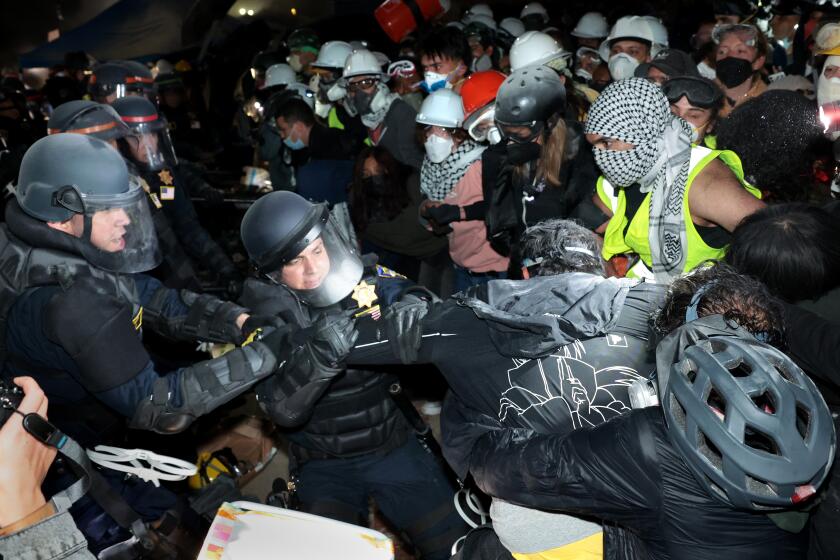Latino parents join to pressure schools
For years now, Latino parents have been dropping their children off at California’s public school steps with confidence that the children they delivered in the morning would be better educated by the end of the day.
Senora maestra, te entregamos los ninos. (Madam teacher, we turn over the children.) That statement expresses a belief in the Latino culture that teachers should be accorded the highest degree of faith and respect.
But after years of seeing their children fall behind in practically all areas of study, Latino parents are now tearfully asking questions they probably should have been asking all along: Why aren’t my children educated? Why can’t my children read and write?
Senora maestra, how did it get so bad?
This new undercurrent of discontent among Latino parents has spawned community action groups that are banding together to apply pressure on schools, and it is bringing Latino parents into the day-to-day functioning of schools as never before.
Hundreds of Latino parents are teacher aides or do volunteer work at their neighborhood schools. Stevenson Junior High School, in predominantly Latino Boyle Heights, for example, can count on 75 parent volunteers.
In the summer of 1983, The Times published a series on Southern California’s Latino community.
Some of the increased involvement stems from federal and state programs for minority parents.
These programs, among other things, have brought more Latino parents to school advisory councils and school meetings.
Ruben Zacarias, superintendent of city schools in the predominantly Latino East Los Angeles region, said:
“The parents here were always interested in education. But they have become more sophisticated and more involved than in the past.
“There are more parent training sessions, more parent conferences and parent education classes. So many more of them are going through ESL (English as a Second Language) classes. When I go speak before parent groups these days, there may be as many as 300 to 400 parents there. It has really picked up.”
According to a 1982 district report, the percentage of parents attending parent-teacher conferences was highest in East Los Angeles, countering the belief that Latino parents care little about their children’s education.
Elidia Chavez, a volunteer parent at 2nd Street Elementary School in East Los Angeles, said, “We hear that our children are not smart. That’s not true. They have the intelligence to succeed, to do their best and, yes, it can be done.”
In addition to parent involvement, numerous community groups, such as Los Angeles’ United Neighborhood Organizations (UNO) and Parents Involved in Community Action (PICA), now play watchdog roles.
UNO, for example, was instrumental in adoption of performance reviews for city school principals.
Latino influence in the schools also has been enhanced by the increased presence of Latino teachers and administrators. But Latinos are still woefully underrepresented in these positions. Statewide, Latino teachers and administrators now number about 12,000, or 6% of the total in a state where Latinos represent about 25% of school enrollment. Robert Cruz, president of the National Assn. of Bilingual Educators, said the combination of parent groups and more Latino teachers and administrators should provide the basis for improved school policies toward Latino children.
“The Hispanic community for too long has depended on somebody else to educate us,” Cruz said.
Robert A. Cervantes, an administrator in the Office of Migrant Education in the state Department of Education, argues, however, that little will change unless Latinos are better represented on school boards and in the state Legislature.
Today, only 352 of the 5,200 school board members in California are Latinos, according to the Mexican American School Board Assn.
In Los Angeles, where 49% of the 500,000 students in the city schools are Latino, the election of Larry Gonzalez to the Board of Education two months ago provided the board with its first Latino representative since 1979, when former U.S. Ambassador to Mexico Julian Nava was a member.
Cruz believes that much of the future Hispanic leadership will have to come from teachers and administrators who have worked their way up in the ranks.
“Those of us in leadership roles have to take the lead,” he said. “If our community is really going to improve, we’ll have to do it ourselves. We’re going to be the ones to hold educational institutions accountable for the quality of programs.”
This story appeared in print before the digital era and was later added to our digital archive.
More to Read
Sign up for Essential California
The most important California stories and recommendations in your inbox every morning.
You may occasionally receive promotional content from the Los Angeles Times.
